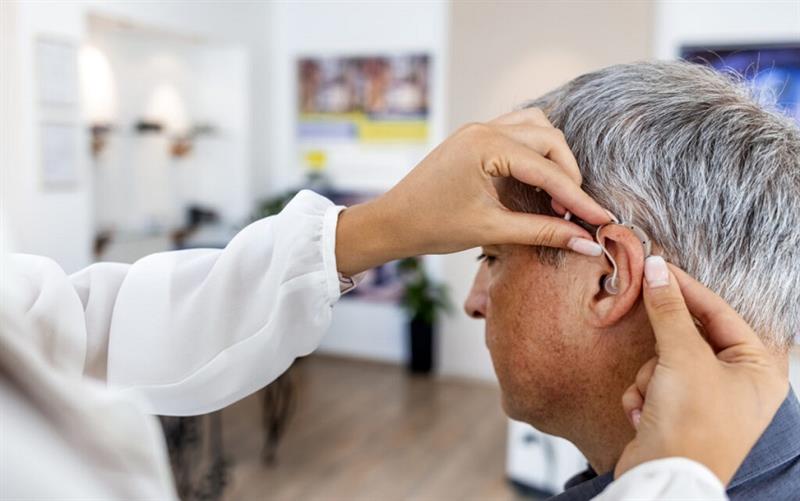
One in three persons between the ages of 65 and 74 and 50% of people over the age of 75 experience hearing loss, making it a prevalent problem for the elderly. Many of us are aware that people with hearing loss may find it challenging to understand and interact with others. This may make depression and loneliness more likely. You might not be aware, though, that hearing loss might shorten life expectancy. Let's look at the impact hearing loss has on quality of life.
What Causes Hearing Loss Associated With Aging?
The slow onset of age-related hearing loss may cause you to draw comparisons to other medical issues. However, the following changes are the main causes of hearing loss:
- The inner ear's structures
- Ear structures in the middle
- Alterations in the ear's blood flow
- Damage to the ear's tiny hairs that convey sound to the brain
Age-related hearing loss might also be caused by other problems. They consist of:
- Exposure to obtrusive sounds
- Diabetes
- Smoking
- Using specific treatments or medications
What Do Studies on Hearing Loss and Health Say?
According to a study, hearing loss and health in elderly people may be related.
Untreated hearing loss may shorten a person's life expectancy.
The patient's capacity to carry out everyday tasks may be compromised if vision loss occurs concurrently with untreated hearing loss, which raises concerns about the patient's quality of life and lifespan.
According to a different study, acute sensorineural hearing loss increases the risk of stroke. Heart disease and hearing loss are frequently connected. Your body needs to work harder to pump blood through restricted blood arteries, which frequently leads to high blood pressure.
This may have an effect on the blood vessels in the ear canal, limiting blood flow and leading to hearing loss.
This study suggests that hearing loss may result in brain shrinkage.
Untreated hearing loss impacts your quality of life and increases your risk for catastrophic illnesses like heart disease, stroke, brain atrophy, and cognitive decline. As a result, it may shorten your life expectancy.
Hearing loss-related health risks
Issues with both physical and emotional health are associated with hearing loss. The negative implications of hearing loss on both physical and mental health are discussed here.
1. Depression
According to a study, those who had hearing loss had higher rates of depression than those who did not. To learn more about the connection between depression and hearing loss, see this blog.
2. Heart Condition
A study found that low-frequency hearing loss may be an indicator that a patient has cerebrovascular illness or is at risk for developing the condition.
3. Mental decline
According to a study, hearing loss is linked to both hastened and incident cognitive decline in elderly people living in the community, which includes:
4. Dementia
A study found that:
- Dementia development is twice as likely to occur in people with mild hearing loss.
- Dementia is three times more likely to develop in people with moderate hearing loss.
- Dementia is five times more likely to occur in people with significant hearing loss.
Older individuals' coping mechanisms for depression and hearing loss
A hearing loss doesn't have to define you or keep you from leading a full and fulfilling life. The advice provided here can help you take control of your personal limitations and be proactive.
1. Seek out a medical expert.
In techniques that were not even feasible a few years ago, hearing loss can now be efficiently treated and maintained. Many people find it difficult to confess they need assistance. Early intervention is crucial, though, as untreated hearing loss can get worse. Consult your primary care physician first. You may be directed to another expert (such as an audiologist, otolaryngologist, or occupational therapist) if they are unable to diagnose your condition.
who can assess your circumstances and assist you in considering all of your alternatives. Your available treatment choices could be one or more of the following, depending on the type of hearing loss you have:
- Surgery
- Audio devices
- Training the ear and assistive listening equipment
- Medication
2. Consult a mental health professional.
Consider consulting a therapist who has knowledge of working with hearing-impaired people in addition to therapeutic methods. They can help you learn effective coping mechanisms and navigate the grief process. They could even be able to assist you in giving your loss context so that you can still enjoy life.
3. Hearing aids
The best and most efficient way to manage hearing loss is frequently by using hearing aids. Hearing aids come in a variety of shapes and sizes and have features and functionalities to fit almost any lifestyle and kind of hearing loss. Select the options in consultation with your audiologist based on your hearing needs, preferences, and financial constraints.
4. Changes in Diet
Hearing loss and iron deficiency anemia are related. If you think you may have iron deficiency-related hearing loss, consult a doctor about the best course of action to restore your hearing and stave off further health issues.
It's ideal to keep yourself as educated with your hearing aids and a new breakthrough in the technology. Ask your query via Book an Appointment today. For more information visit https://hearing.careinc.ca or you can call us today at (403)605-6300